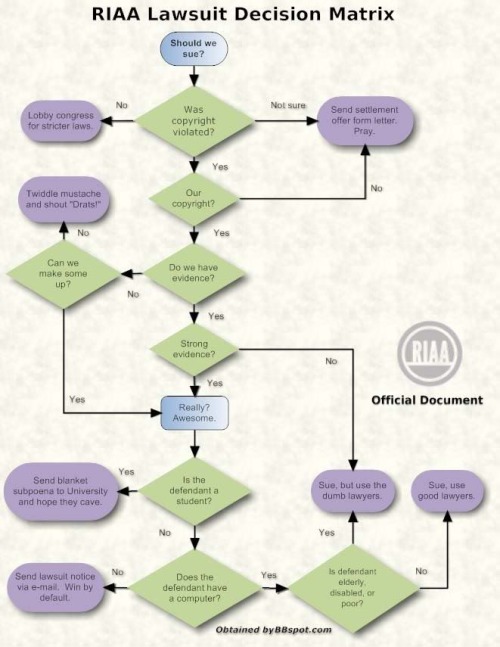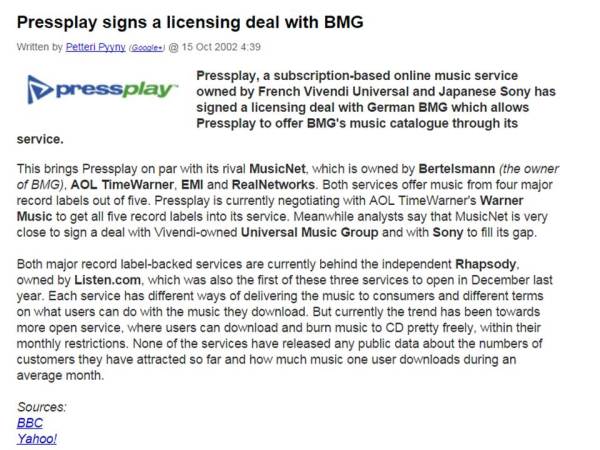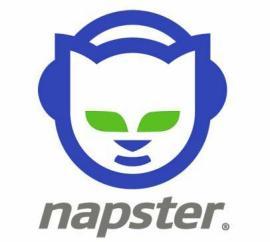It suddenly feels like 1999 again. Remember when Napster destroyed, almost single-handedly, the recorded music business? Napster was like the disease from Dawn of the Planet of the Apes, with only the strongest and luckiest to survive.
Here We Go Again? The Music Business Turns Away From “Freemium”
The Big 3 labels made it (in 1999, they were the Big 5). Lots of smaller labels, and lots of individuals, didn’t. There were layoffs all over the place, from mailrooms to executive suites. The organized music industry fought hard against Napster and other free file sharing services like Limewire and Grokster. The industry even sued individual music fans (sometimes these fans were called “customers” because, well, they were).

I’m simplifying, but the iTunes store saved the day in 2003. iTunes tamed the Wild West of a free and unlawful internet and turned people back into paying customers. At the time, you could buy songs for $0.99. A buck for a song. It was great marketing. The labels went along because they couldn’t come up with anything better (remember when Sony and Universal formed “pressplay”?).

A 2002 headline showing the major labels’ efforts to launch a competitive streaming service.[/caption] Piracy still existed, but the labels were more content (not totally; note how it costs more than $0.99 per song on iTunes now). YouTube went live in 2005 and the labels weren’t happy again. Now, consumers could upload songs and videos to the web on a safe platform. Copyright owners were not necessarily happy. Lawsuits sprang up again.
Other start-ups tried to work with the labels, but it was never easy. Ever heard of Spiral Frog? This company had a similar model to what Spotify would use: Listen to music on demand for free in exchange for exposure to banner advertisements on the site.
But the labels charged exorbitant licensing fees and placed unrealistic restrictions on the consumers who used each service. For example, the service wouldn’t work on iPods or iPhones and downloads were saddled with Digital Rights Management software at a time when iTunes was removing it.
By 2011, the labels started to come around. They realized that to help combat piracy and still earn revenue, they could join start-ups rather than just ask for tremendous licensing fees and advances. The most popular company to come out of this new thought process? Spotify.
Spotify is partially owned by Universal, Sony, and the Warner Music Group. Until recently, you rarely heard anything negative rumble from these companies about Spotify. With a valuation hovering close to $6 billion, each label group is allegedly (“allegedly” is used because it has never been officially stated that the labels are equity owners, due to non-disclosure agreements) set to receive a hefty return. Even during the Taylor Swift/Spotify war, the only label-critique you heard was from independent label Big Machine Label Group.
But then something happened. Beats, the headphone maker, released an eponymous competitor to Spotify, Pandora, and other streaming services. Beats was free for a short trial period until it became a subscription (fancy word for “you gotta pay”) service for $9.99 per month.
Pandora’s radio service was the first to offer customized playlists built around user preferences. They did this under their algorithmic Music Genome Project. While relatively successful, it wasn’t considered perfect. The idea behind Beats was that the music you heard, while not completely on demand like Spotify, was programmed by humans for humans. That was its main differentiation between itself and its competitors. But Beats, in its initial iteration, failed. Why?
Pandora offers a free, ad-supported service and a subscription service with no ads. Spotify has a subscription service and an ad-supported service. Both companies work under a Freemium model, the idea being that consumers will come and use the free service, love it so much that they can’t live without it, then get sick of the ads and subscribe. When people subscribe, the companies make more money. The more money they make, the more they can pay out to the record labels and publishers. See HERE for a good rundown of the state of the industry once Spotify reached 10 million subscribers.
Beats, however, didn’t play the Freemium game. The short trial was merely a short trial. Beats wanted you to pay. People didn’t. So the company remained known for its headphones. In May, 2014 Apple announced it was buying Beats. Streaming has proliferated at the expense of paid downloads and Apple sought a way into the streaming market.
Beats provided that opportunity.
Along with the company came one very important and influential record label executive, Jimmy Iovine. It’s been reported that Iovine doesn’t like the Freemium model. Iovine is working with the major labels on a Beats relaunch. Details aren’t clear, but the consensus is that the labels want to forego Freemium and only license content to the new Beats (which may change to the iTunes brand) if there is a subscription-only service priced at $9.99 per month.
It is also reported that labels are unsure if they want to continue with the all-you-can-eat/ad-supported models offered by Spotify, Deezer, and other streaming companies. Why? They want more money. To be fair, it’s not just the labels that want more money. Publishers want more money. Songwriters want more money. Recording artists want more money. The money that comes from a paid service can be considerably higher than that using the Freemium model.

There’s one problem: People are used to free. People want free. Why did Napster work? Downloads were free. Why is YouTube successful? Content is free. Why do 60 million people use Spotify’s ad-supported service (compared to 15-million subscribers)? Because the songs are streamed for free.
The powers-that-be seem to be walking on a treacherous slope. The stakeholders in the recorded music industry (don’t forget shareholders in the public companies as well as the parties listed two paragraphs above) want revenue to grow. Selling their equity positions in Spotify would be a Band Aid approach. They’re trying to look longer-term than a one-time sale.
But will consumers go along with new pay models?
Labels want Freemium and subscription services to be more differentiated. That way, more ad-supported users will, in theory, like a service enough to become a subscriber. In fact, this is what Taylor Swift initially wanted. She/her team/Big Machine would have allowed her content to remain on Spotify, but only on the subscription tier. Spotify said no. In their eyes, they believe that users will come to love Spotify and its breadth of ALL catalog so much that they will convert to subscription.
Label personnel have toyed with the idea of “listening caps” too. In this case, a Freemium user would be allowed to listen to a set number of hours of the ad-supported service per month. One would think sound recording copyright owners (the labels) would also turn toward Spotify’s mobile service as a form a differentiation too. In the past, mobile on Spotify was only subscription.
That changed in December, 2013 when Spotify announced mobile use was now non-subscription; although it wasn’t completely on demand. Users could still have access to their customized playlists, but those playlists could only be played on shuffle.
Meanwhile, according to THIS, there were 164 billion streams in 2014 on mobile phones - a 50% increase over 2013. If paywalls were added to Spotify and other like services, that growth would drop. Maybe that wouldn’t be the worst case scenario in the short term if net revenue increased in spite of fewer streams.
But you have to wonder if consumers, either those who have grown up around free (pirated) or Freemium (ad supported), or those who’ve grown used to music streamed in that fashion, would also turn back the clock a decade. Is the industry just asking for a return to greater piracy?
Consumers might not go for a revised Beats/iTunes subscription service. They didn’t the first time. Just because iTunes is on board now, will consumers deluged with an assumed massive marketing campaign be convinced to pony up and pay?
Labels have one other point to be considered, in addition to turning away consumers back to piracy. If Apple and iTunes/Beats becomes too strong and Spotify/Deezer/YouTube lose, iTunes/Beats will have more leverage to lower pricing or dictate terms of service. When Steve Jobs proposed iTunes to labels back in 2002 (read Walter Isaacson’s amazing Steve Jobs for details), the labels didn’t want to break up albums into singles and didn’t want to charge $0.99 per song. Jobs and Apple had leverage. Who else could save the labels from themselves?
The iTunes store was a huge hit, and for years downloads drove increased revenues. Total downloads have lost ground to streaming (even though download revenue still dwarfs streaming revenue). Consumers prefer streaming and prefer ad-supported models. That’s the way of the world in 2015.
With iTunes/Beats and the labels on board to make consumers pay (read HERE about Sony head Doug Morris proclaiming, “free is death”), one wonders if they remember what happened in 1999, when Napster gave consumers illegal license to rebel against parting with their money. Steve Jobs isn’t around anymore to save the industry from itself.
Can this new momentum be stopped before another dark age takes over?
What do you think? It’s possible we’re still in a maturing phase and subscription vs. Freemium will ultimately be dictated by market forces and not label executives. Give your thoughts below.
Professor David Philp is Assistant Professor Music Management & Popular Music Studies at William Paterson University. He is the co-host of the only FREE advice college radio-based music & entertainment industry talk show in America, Music Biz 101 & More, which airs live most Wednesday nights and is available as a podcast HERE every night (days too). Reach him at PhilpD@wpunj.edu or find him on LinkedIn HERE.

